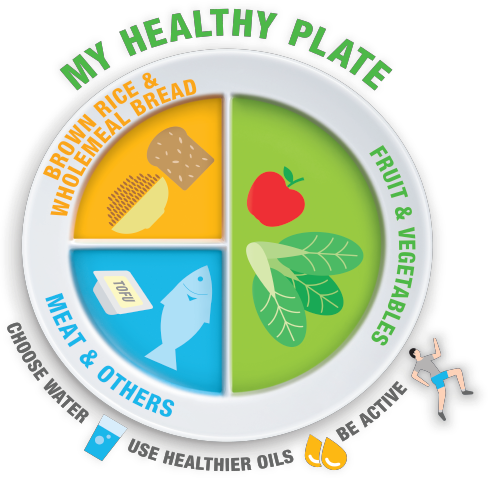Over the past few weeks, we have been discussing training, recovery, and nutrition. We mentioned quite a fair bit of nutritional content, such as highlighting the need for fats for hormone health, carbohydrates for energy, and protein for muscular growth. However, there’s one nutrient that most individuals don’t get enough of and is actually quietly supporting almost every system in your body.
This essential nutrient is called fibre.
Fibre is essential for gut health, metabolism, cardiovascular protection, immunological support, and even mood management, despite its low profile. Healthhub (2025) notes that one in four Singaporeans experiences chronic constipation, stressing the importance of fibre in our diets.
🌾 What Is Fibre?
Fibre is a form of carbohydrate present in plant-based foods that the body can not digest. It passes through the digestive tract as a regulator, cleanser, and source of nutrition for good gut bacteria rather than being broken down for energy (Mayo Clinic Staff n.d.).
There are primarily two kinds:
- Soluble fibre: turns into a gel-like material when dissolved in water. It decreases LDL cholesterol levels, stabilises blood sugar, and slows down digestion. Present in beans, citrus fruits, apples, and oats (HealthHub 2025).
- Insoluble fibre: promotes stool volume and speeds up transit time. Typically found in vegetables like potatoes and cauliflower, as well as whole grains, nuts, and seeds (HealthHub 2025).
The majority of meals high in fibre contain a mixture of both forms, which are equally necessary.
🔬 What Research Says About Fibre’s Benefits?
1. Diversity of the Microbiome and Gut Health
Your gut microbiota, which is made up of billions of bacteria that affect immunity, digestion, and even brain function, is fed by fibre. Short-chain fatty acids (SCFAs), which reduce inflammation and promote metabolic health, are produced by a diversified, fibre-fed microbiome (Makki et al. 2018)
2. Regulation of Blood Sugar
By slowing the absorption of glucose, soluble fibre assists in preventing blood sugar dips and spikes. Thus, it will help one to regulate and manage their blood sugar level better (HealthHub 2025). This is particularly crucial for those with type 2 diabetes or insulin sensitivity.
3. Heart Health
Fibre helps to lower bad cholesterol, also known as LDL, and reduces the risk of cardiovascular disease by binding to cholesterol in the digestive tract (Anderson et al. 2009).
4. Weight management
Foods high in fibre are more filling and digest more slowly, which helps control cravings and prevent overeating. Dietary fibre promotes fullness and weight control by slowing down food consumption and chewing (HealthHub 2025). This is also backed up by a recent study program done in the US by Kelly et al. (2023), which achieved a mean weight loss of 3.28kg within 16 weeks with the implementation of increased fibre intake.
5. Linear decreases in the risk of colorectal cancer
Research by Aune et al. (2011) found that the risk of colorectal cancer is reduced by 10% for every 10 g of total dietary fibre and cereal fibre consumed daily, by roughly 20% for every three servings (90 g/day) of whole grain, and by even more with increased consumption.
👉🏼How Much Fibre Do You Need?
According to Healthhub (2025), in Singapore, it is advised that males consume 26g of fibre and women consume 20g.
To do this, include two servings of fruit and two servings of vegetables each day, and fill a quarter of your plate with wholegrains (for example, brown rice, wholemeal bread, and rolled oats).
 How to Increase Your Fiber Intake (Without Changing Your Diet)
How to Increase Your Fiber Intake (Without Changing Your Diet)
- Use barley, quinoa, or brown rice instead of white rice.
- Incorporate psyllium husk, flaxseeds, or chia seeds into smoothies.
- Go for wholegrain cereals, bread, and pasta.
- Add beans such as black beans, chickpeas, and lentils.
- Eat roasted nuts, raw vegetables, or fruit with skin as a snack.
- Try snacks high in fibre, such as apple slices with almond butter or hummus with carrots.
- Hydrate properly and increase fibre gradually. Abrupt surges may result in discomfort or bloating.
Bottom Line
Fibre is important for long-term health, resilience, and recovery, not only for digestion. It is an essential nutrient that needs extra attention whether you’re attempting to manage chronic problems, train for performance, or just feel better on a daily basis.
At Construct Fitness, we advocate for whole-system wellness, which means ensuring you fuel your body with the nourishment it needs to support each workout, recovery, and outcome.
References
Anderson JW, Baird P, Davis RH, Ferreri S, Knudtson M, Koraym A, Waters V and Williams CL (2009) ‘Health benefits of dietary fiber’, Nutrition Reviews, 67(4):188–205, National Library of Medicine website, accessed 20 September 2025, doi: https://doi.org/10.1111/j.1753-4887.2009.00189.x
Aune D, Chan DS, Lau R, Vieira R, Greenwood DC, Kampman E, and Norat T (2011) ‘Dietary fibre, whole grains, and risk of colorectal cancer: systematic review and dose-response meta-analysis of prospective studies’, BMJ, 343:d6617, National Library of Medicine website, accessed 20 September 2025, doi: https://doi.org/10.1136/bmj.d6617
HealthHub (2025) Boost Your Health: The Essential Benefits of Dietary Fiber, Healthhub Singapore website, accessed 20 September 2025. https://www.healthhub.sg/well-being-and-lifestyle/food-diet-and-nutrition/more-fibre-for-a-fit-and-fabulous-you
Healthhub (n.d.) My Healthy Plate [Image], Healthhub Singapore, accessed 22 September 2025. https://www.healthhub.sg/programmes/nutrition-hub/eat-more
Kelly RK, Calhoun J, Hanus A, Payne-Foster P, Stout R and Sherman BW (2023) ‘Increased dietary fiber is associated with weight loss among Full Plate Living program participants’, Frontiers in Nutrition, 10:1110748, Frontiers website, accessed 22 September 2025, doi: 10.3389/fnut.2023.1110748
Makki K, Deehan EC, Walter J, and Bäckhed F (2018) ‘The impact of dietary fiber on gut microbiota in host health and disease’, Cell Host & Microbe, 23(6):705–715, Cell Host & Microbe website accessed 20 September 2025, doi: https://doi.org/10.1016/j.chom.2018.05.012
Mayo Clinic Staff (2024) Dietary fiber: Essential for a healthy diet, Mayo Clinic website, accessed 20 September 2025. https://www.mayoclinic.org/healthy-lifestyle/nutrition-and-healthy-eating/in-depth/fiber/art-20043983




